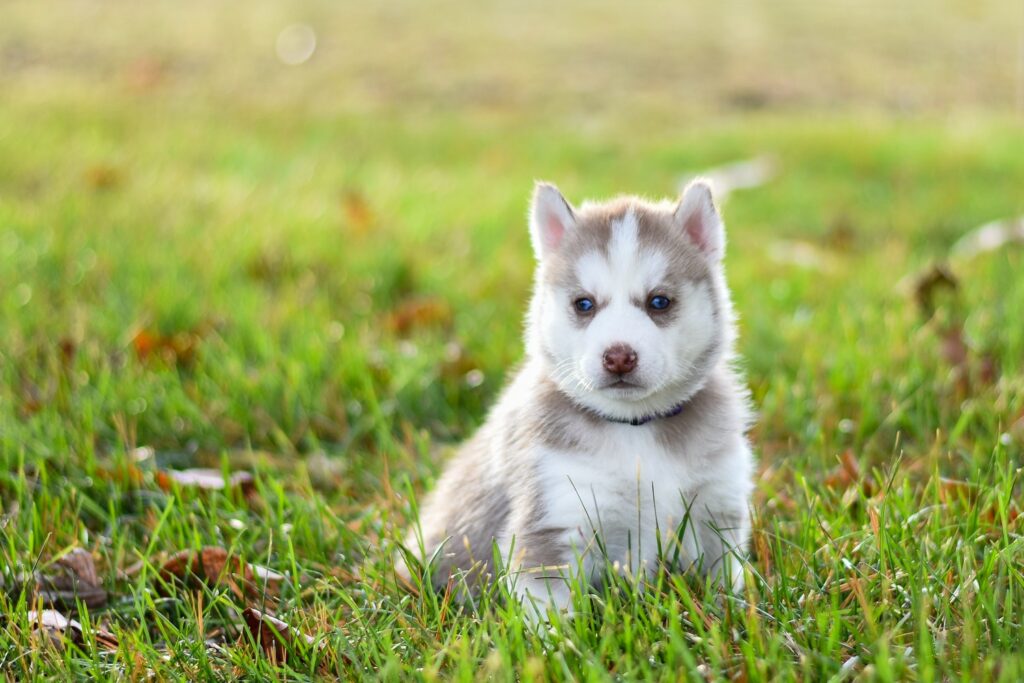
.
Almost everyone on the planet loves puppies. They’re adorable and fun. It’s easy to feel tempted to bring a brand new puppy into your home and make them a full-fledged member of your family.
For many people, raising a pup is a rewarding labor of love. For others, it’s a lot more work than they anticipated. If you’re thinking about bringing a puppy home, here’s what you should know.
If you haven’t yet adopted a puppy, there are many things you need to consider before you bring one home, such as the breed, cost of pet insurance, the spaying/neutering process, vaccination against rabies, parvo, and other illnesses, the socialization process, and much more.
It’s better to spend a long period of time weighing the pros and cons before you come to your decision. Once you have a puppy, you’re entering a commitment that can last longer than ten years depending on the breed.
Young puppies shouldn’t be left alone for longer than three hours. They have smaller bladders and they’re still working out the finer aspects of house training. Your puppy is relying on you to be able to go to the bathroom, and if you aren’t there to help, accidents will certainly happen.
Puppies left alone for too long may inappropriately eliminate, and if this behavior develops when they’re young, it may be harder to break them out of that cycle.
Once your puppy grows up, they can be left alone for up to six to eight hours.
If you have a doggie door and a secure fenced-in yard, a well-trained adult dog should be able to self-manage for the duration of your workday.
If you have three cats and two of them don’t get along with dogs, you shouldn’t bring a puppy into your home. It’s unfair to all the animals involved. The other pets will feel like a negative presence is encroaching on their territory, and the puppy won’t feel safe when the other animals seek to defend their turf.
You’ll also have to consider the other people in your household and how much work they’ll actually be willing to contribute to the care of the puppy. It’s important to note that young children aren’t at all reliable as caretakers of animals. Your five-year-old will express an eagerness to help, but their eagerness will fade rather quickly when puppy responsibilities interfere with the things they want to do the most like going into their room to play video games.
A puppy is, in essence, a baby animal. It’s going to depend on you for everything and follow you everywhere, and it doesn’t have the wisdom and communication skills an adult dog will have.
You’ll be doing a lot of guessing and training until your dog progresses into maturity. It’s a full-time commitment, and it requires a wealth of patience, positive reinforcement, and effort.
If you want a dog but don’t have the time to really commit to raising one, it may be a better idea to rescue a well-behaved adult dog from your local animal shelter.
A dog that already understands how to have social interaction with people and knows to go potty outside is much easier to care for. You’ll be able to spend more time playing with your dog and less time chasing them around and trying to teach them the fundamentals of becoming a housebroken creature.
Many people who adopt puppies just don’t immediately make the connection that puppies become dogs. While this is completely logical and something that people rationally understand, it’s easy to forget when you set your eyes on an adorable little puppy.
In one to two years, your puppy will become an adult dog that takes up much more space, eats much more food, and may be a lot louder and much more to handle. Will that dog still fit in your apartment?
If you’re committed to the idea of being a long-term pet owner, it’s important to consider what your puppy will grow into. The puppy stage is fleeting.
You’ll be spending more than a decade with a fully grown dog. Make sure you’re fully equipped to provide for that animal for the next ten years.
Puppies purchased from breeders, adopted from shelters, or taken home from rescues should get a health checkup at the veterinarian prior to adoption — it’s not common that you’ll be there to attend the checkup, but you should be given paperwork that shows proof of initial shots, deworming, and overall good health.
It can be hard to tell if you’re purchasing or adopting a puppy from a reliable and legitimate location or through a puppy mill if you’re new to the puppy world.
Conduct thorough research on the breeder, shelter, or rescue in question. If you are working with a breeder, ask if the parents have had any health testing or genetic testing done. If it’s important to you, you can also check if the puppies’ parents are AKC-registered.
If you are getting your puppy from a shelter or rescue, ask what kind of health information they have for your puppy. Shelters and rescues likely won’t have information about your puppy’s parents, but they may be able to tell you if genetic testing has been done on your puppy. You should also inquire about the puppy’s history, whether they have suffered abuse, why they were put up for adoption, and where they were rescued from. This will give you a more complete understanding of what type of care your dog needs from you.
Puppies showing symptoms or signs of illness, like diarrhea, coughing, or lethargy may have an issue like parvovirus or parasites, in which case you should be mindful of the extra effort they will require.
Be prepared for some accidents and practice your patience. It’s hard work, but in the end, you’ll have a strong and beautiful bond with your furry companion for many years to come.
Your puppy doesn’t know anything about being a well-behaved dog.
They’re going to want to chew on everything.
They’re going to run around and be curious.
They’re going to get food everywhere when they eat.
You need to keep this in mind before you bring your puppy home.
Secure electrical cords and elevate valuables and breakable items to a position high above the floor. Make sure all household chemicals are secured in a cabinet, rather than sitting next to the toilet or on the floor of the laundry room.
If you have expensive rugs, consider temporarily replacing them with cheaper rugs that won’t be devastatingly destroyed by a puppy accident.
Place puppy items like chew toys, quality food bowls/water bowls, and beds in areas where they will be easy for your puppy to access.
Switch any small wastebaskets with an open top for wastebaskets with lids that close. This will keep your puppy out of the bathroom trash and away from things that might harm your puppy’s body.
Before your puppy came to you, they were being given specific food and treats. They likely had a daily schedule and bathroom routine that they followed. Plan to duplicate these things in your own home.
If your puppy’s diet and habits remain the same, transition to a new family and home will be much easier.
If the puppy you’re about to adopt is being bottle-fed, this is a red flag. Puppies should not be separated from their mothers until they’re fully weaned (the generally accepted age is 8 weeks old).
If your puppy is being bottle-fed out of necessity, such as a special medical need or the absence of a healthy nursing mother, it’s best to leave this puppy in the care of someone more experienced with rehabilitating animals.
The moment your new puppy comes home, it’s time to start training.
Show your puppy where their things are. Observe your puppy and take note of the way they interact with your home.
Take your puppy outside on a leash every two hours and encourage your puppy to go potty, rewarding with treats every time they successfully eliminate in the right place.
You should also work on setting boundaries. Training your pet while it’s still young will result in a well-behaved adult dog who needs few reminders.
Don’t allow your puppy into areas of your home you don’t intend for them to have permanent access to, like a potentially dangerous garage workshop or a family member’s room who doesn’t enjoy the company of dogs.
You also shouldn’t let your puppy sleep on your bed unless you intend to allow the behavior to continue when your dog is full-grown.
After you pick up your puppy, schedule the soonest possible appointment with your vet. Your puppy needs shots and wellness tests.
Shelters do their best to keep animals healthy, but they’re often tragically underfunded, and illness can sometimes slip through the cracks.
You can work with your vet to establish a thorough calendar of important dates and a wellness plan. Book all your puppies’ check-ups and vaccination appointments in advance.
You should keep in close contact with your vet about what is and isn’t safe for your puppy. Some things, like pet CBD, are perfectly fine for adult dogs, and it may be better to wait until adulthood before introducing your puppy to some very beneficial items like pet CBD, supplements, or probiotics. The same goes for certain snacks and treats.
Your vet would much rather answer a wealth of questions than help your puppy after something went wrong. Don’t be afraid to ask.
Good luck!
Sources
Puppy Potty Training Schedule: A Timeline For Housebreaking Your Puppy | American Kennel Club
Puppy mill doublespeak | Humane Society of the United States

These statements have not been evaluated by the Food and Drug Administration. These products is not intended to diagnose, treat, cure, or prevent any disease.
The world of pet wellness is always evolving. Get notified about new product launches, news, and more!
Due to state laws, we are unable to ship product to Idaho, Kansas, South Dakota, and Nebraska.
VetCBD products are made using hemp containing less than 0.3% THC.